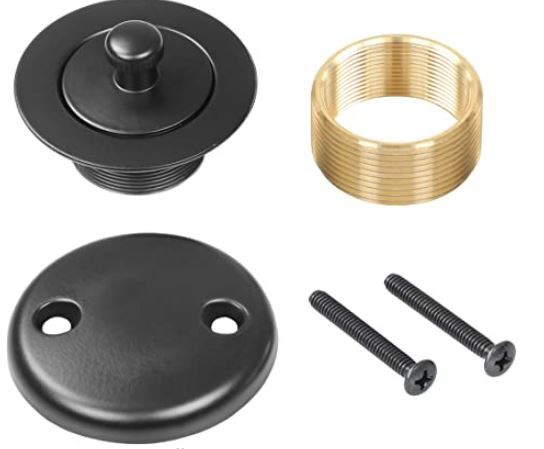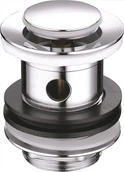Hey there! As a supplier of sink waste products, I've seen firsthand the importance of following proper rules for sink waste disposal in industrial facilities. In this blog, I'll share some key guidelines that can help keep operations running smoothly and environmentally friendly.
First off, let's talk about why these rules matter. Industrial facilities generate a significant amount of waste through their sinks, and improper disposal can lead to a whole host of problems. It can clog pipes, cause backups, and even contaminate water sources. Not to mention, there are often strict environmental regulations in place that companies need to comply with.
One of the most basic rules is to separate different types of waste. In industrial settings, sinks may be used for various purposes, such as cleaning equipment, rinsing chemicals, or disposing of food waste in some food - processing facilities. You should never mix chemical waste with organic waste or solid debris. For example, if you're dealing with a sink used for chemical rinsing, the waste needs to be collected in a separate container designed to handle those specific chemicals. This helps prevent dangerous chemical reactions and makes it easier to treat the waste later.
When it comes to solid waste, it's crucial not to let large objects or debris go down the sink. Things like paper towels, gloves, or chunks of food can quickly block the pipes. In industrial kitchens, for instance, employees should be trained to use strainers to catch any solid particles before they enter the drain. This simple step can save a lot of hassle and money on plumbing repairs.
Another important aspect is the use of appropriate disposal systems. There are different types of sink waste products available that can help manage waste more effectively. For example, the Black Click Clack Waste is a great option for many industrial sinks. It has a reliable click - clack mechanism that allows for easy opening and closing, which can be useful for controlling the flow of waste and preventing unwanted spills.
The Sprung Plug Basin Waste is also a popular choice. It features a sprung plug that can be easily operated, and it's designed to handle a decent amount of waste without getting clogged easily. This type of waste is suitable for sinks in areas where there's a moderate amount of water and waste flow.
If you're looking for a more convenient option, the Flip Waste Plug might be the way to go. It has a flip - top design that makes it easy to open and close with just a simple flick of the finger. This can be very handy in busy industrial environments where employees need to quickly empty the sink.
In addition to the type of waste product, the size of the drain and the pipe system also matters. Industrial facilities should ensure that their sink drains and pipes are of an appropriate size to handle the volume of waste generated. A small - diameter pipe in an area with high - volume waste can lead to frequent blockages. So, it's important to do a proper assessment of the waste flow and choose the right - sized pipes during the installation or renovation of the sink system.


When it comes to chemical waste disposal, there are even more strict rules. Industrial facilities need to identify the chemicals being used and determine the appropriate disposal methods. Some chemicals may need to be neutralized before disposal, while others may require specialized treatment facilities. It's essential to have a detailed waste management plan in place for chemical waste, and employees should be trained on how to handle and dispose of these substances safely.
Regular maintenance of the sink waste system is also key. This includes cleaning the drains and pipes on a regular basis to prevent the buildup of grease, scale, and other debris. In industrial kitchens, for example, grease traps need to be emptied and cleaned frequently to avoid blockages. A well - maintained sink waste system not only reduces the risk of breakdowns but also extends the lifespan of the equipment.
Now, let's talk about environmental considerations. Industrial facilities are under increasing pressure to be more environmentally friendly. One way to achieve this in sink waste disposal is to recycle as much as possible. For example, if there are metals or plastics in the waste, they can often be separated and sent for recycling. Some facilities may also be able to treat and reuse the water from the sinks, especially in areas where water is a scarce resource.
It's also important to keep records of all waste disposal activities. This includes documenting the type and amount of waste generated, the disposal methods used, and the dates of disposal. These records can be useful for regulatory compliance and for identifying areas where waste management can be improved.
If you're an industrial facility looking for high - quality sink waste products and advice on proper waste disposal, we're here to help. We have a wide range of products to suit different industrial needs, and our team of experts can provide you with customized solutions. Whether you need help choosing the right waste product or want to develop a comprehensive waste management plan, we're just a message away.
In conclusion, proper sink waste disposal in industrial facilities is not only about following the rules but also about ensuring the smooth operation of your business and protecting the environment. By separating waste, using the right products, maintaining the system, and being environmentally conscious, you can create a more efficient and sustainable industrial environment.
References
- Industrial Waste Management Guidelines, Environmental Protection Agency
- Plumbing and Drainage Standards for Industrial Facilities, National Building Code





